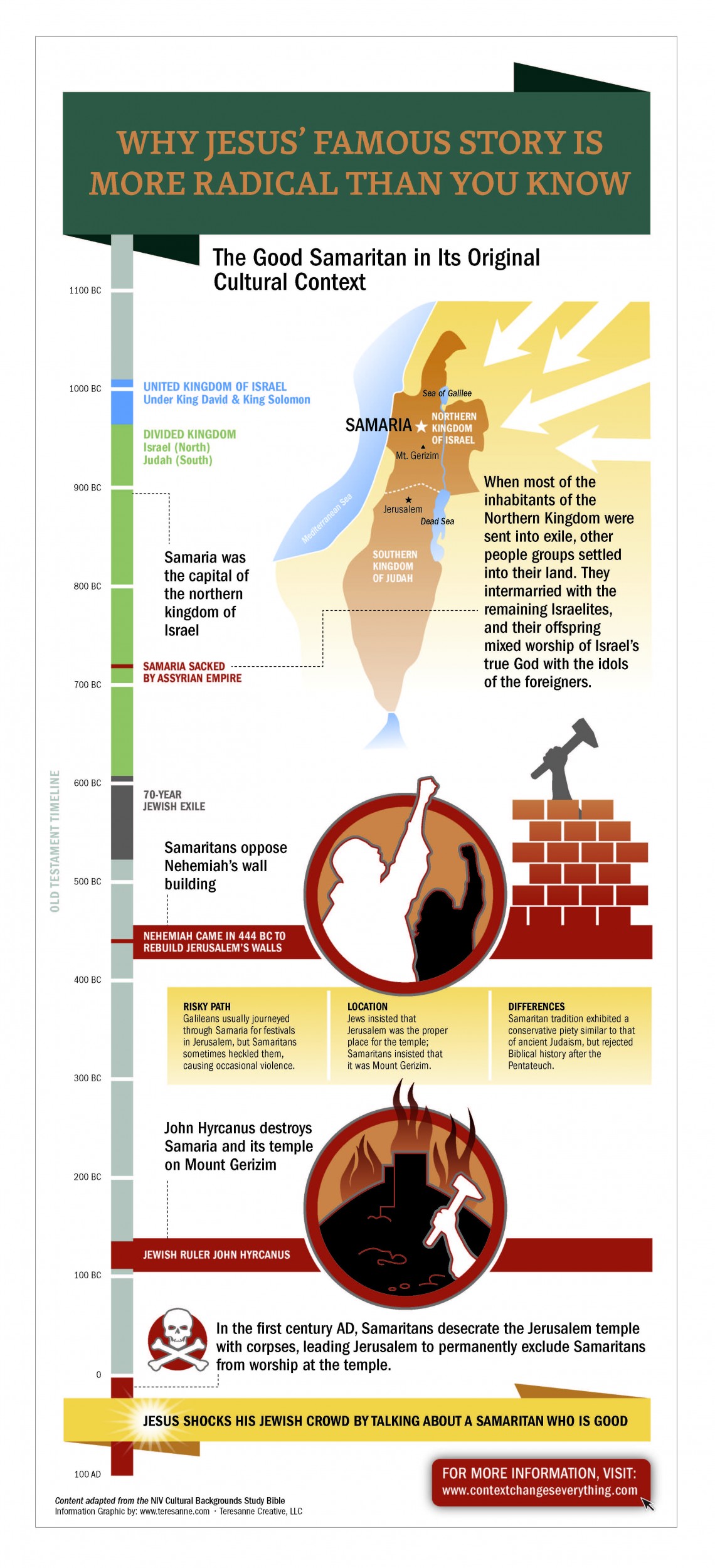Thousands already have! Try your 30-Day free trial today!
Remove banner ads and expand your Bible reading experience using our valuable library of more than 40 top resources by becoming a member of Bible Gateway Plus. Try it free for 30 days!
 Look beyond the Bible story of Joseph’s coat of many colors and discover that he holds surprising insights for today’s workplace. Examining Joseph’s experiences as a slave, a prisoner, and the CEO of a food company in Egypt, the life of this biblical patriarch offers lessons for use in modern business, government, and education.
Look beyond the Bible story of Joseph’s coat of many colors and discover that he holds surprising insights for today’s workplace. Examining Joseph’s experiences as a slave, a prisoner, and the CEO of a food company in Egypt, the life of this biblical patriarch offers lessons for use in modern business, government, and education.
Bible Gateway interviewed Albert M. Erisman about his book, The Accidental Executive: Lessons on Business, Faith, and Calling from the Life of Joseph (Hendrickson Publishers, 2015).
[Sign up for the free daily email devotional about faith and work life, TGIF: Today God is First]
What role should the Bible play in a person’s career development?
Al Erisman: If we truly believe that Jesus Christ is Lord of all, then he must be Lord over our work and our careers. One of my inspirations for the book came from being a part of the Theology of Work Project (@TheoWorkProject). We’ve written a commentary on the Bible—which will be available to Bible Gateway users as they read Scripture online beginning this Fall—focusing on what it has to say about daily work. From Genesis to Revelation, every book of the Bible offers insight for our careers and our daily work.
How did circumstances in your career lead you to see the Bible story of Joseph in terms of business leadership?
Al Erisman: At a difficult point in my career, I had received a demotion that seemed unfair. For nine months I felt trapped, and then I heard a sermon on Joseph. It focused on that part of the story where Joseph told the Chief Butler the meaning of his dream. He then asked the butler to remember him to Pharaoh because, “I have done nothing to deserve being put in a dungeon” (Genesis 40:15). That connected with my circumstance and I began to look at the story through the lens of his career for insights into my own career.
Why is your book titled The Accidental Executive?
Al Erisman: Joseph had a dream of leadership early in his life. But the way he talked with his brothers and his father, it seemed that Joseph thought leadership was about him rather than about serving others. After 13 years in slavery and in prison, Joseph grew in his relationship with God and began to serve those around him. When he stood before Pharaoh, he didn’t say anything about his own circumstances, almost as if he had set aside the dream of leadership and was prepared for service. That was the time he received his great promotion. Of course we know it was no accident, but from the outside it seemed so.
How does the life of Joseph in ancient times remain relevant today in the areas of morality, career, and the big questions of life?
Al Erisman: The career of Joseph follows our own in so many ways: education; dreams of a future; difficulties coming both from bad choices and from unfair accusations; learning to trust God in difficult times; a great leadership opportunity; planning and executing a strategy; navigating difficult political waters in an organization; and understanding the purpose and meaning of work from God’s perspective. All of these are issues we face today.
What are the major stages of Joseph’s life you identify in the book as contributing to his spiritual and professional development?
Al Erisman: As a young man, Joseph had to learn how to use his education in the right way, beyond the skills he had acquired. He had to learn to see things through the eyes of others, not just through his own eyes. While in slavery and in prison, he needed to learn to trust God, to do his work well even when it was tough, and to maintain this commitment when it seemed all was lost. In a position of power, Joseph had to learn to keep that power in check. Too many leaders fail at a time of great power and success. Joseph found many ways to do this. And putting it all in perspective, Joseph found a calling and purpose in his life. He teaches us specifically that we can be called by God to serve in business, government, or any other profession we sometimes call “secular.”
How should a Christian talk about God in the workplace?
Al Erisman: Joseph is very clear in talking about God in his workplace. He does this in the context of faithfully and excellently carrying out his work, not instead of doing his work. He’s careful to apply to himself what God has taught him, rather than to impose on others. For example, with Potipher’s wife he said, “How could I do such a wicked thing and sin against God?” (Genesis 39:9). When he stands before Pharaoh, he declares “I cannot do it [interpret dreams] but God will give Pharaoh the answer he desires” (Genesis 41:16). When Pharaoh says, “Since God has made all this known to you…” (Genesis 41:39), it reminds us of the words of Jesus who said, “Let your light so shine before men that they may see your good deeds and glorify your father who is in heaven” (Matthew 5:16).
How should a Christian executive handle fear and forgiveness on the job?
Al Erisman: Several modern writers have suggested that we need to separate fear from failure. Failure happens because we live in a broken world, but fearing failure might cause us to never take a risk, rather than to learn from the failure. For the believer, including Joseph, there were many times where doubt and fear could enter the picture. Joseph knew that God was with him, and had confidence that the God who saw him through slavery and prison would see him through the challenges of a 14-year project of collecting and distributing grain on a grand scale. This trust and commitment overcomes fear. When we grasp this, then we need to extend forgiveness to others. Joseph did this with his brothers, and learned a lesson about forgiveness that is vital for all of us. Sometimes we need to forgive more than once, because the other person may not grasp the significance of that forgiveness. We all personally understand this in the forgiveness that God has extended to us through Christ.
What other Bible passages pertain to business ethics and leadership skills?
Al Erisman: The Bible is filled with insights on our work. Proverbs 11:1 is a wonderful illustration of the importance of acting fairly; not just to avoid what God detests, but to delight his heart. As we found in the Theology of Work Project, the entire Bible provides insight on a wide range of topics including fair wages, faithful and creative work, finding purpose and meaning, caring about others, having healthy ambition, dealing well with competition, and the list goes on.
Describe what Ethix magazine is.
Al Erisman: I started Ethix magazine in 1998, looking for stories of business leaders who acted rightly and justly in a world filled with ethics scandals. I’ve had the opportunity to interview more than 100 leaders from around the world, looking for good practices of leadership in a fast-paced world of technology and globalization. Many, but not all, identify as Christians. The interviews are available online at www.ethix.org. Many of these interviews provided modern illustrations for key points in Joseph’s own leadership, and so quotes from 25 of them are used in The Accidental Executive.
What are your thoughts about Bible Gateway and the Bible Gateway App?
Al Erisman: I use Bible Gateway all the time. Most frequently, I use it to look up a passage of Scripture. Often in my writing, I’ll copy the text into a document using Bible Gateway. I also use it when I want to follow along in a Scripture reading at church and don’t have my Bible with me. I love the ability it provides to look at a verse in multiple translations.
Is there anything else you’d like to say?
Al Erisman: Joseph had a career that, in many ways, is like our own. He had some early education that prepared him for his work. He had a difficult period where he was in trouble, he was falsely accused, and forgotten, and this is a powerful reminder to us whenever we have a tough stretch in our own career. Joseph’s difficult period was probably more difficult than any we have endured. The story could have ended with Genesis 40:23, “The chief cupbearer, however did not remember Joseph; he forgot him,” and we could still learn a great deal about dealing with adversity.
In the next part of the story, Joseph has a promotion that’s likely higher than anything we’ll experience: his power, compensation, responsibility, and authority is likely greater than anything we’ll achieve. Yet we can also learn from Joseph how to deal with success when we may be the most vulnerable to failure. Thus I believe all of us can find our careers somewhere between the lows and the highs of Joseph’s career. The entire story helps us see that all aspects of our daily work are a part of God’s story in our own lives.
Bio: Albert M. (Al) Erisman is the executive in residence and past director for the Center for Integrity in Business at Seattle Pacific University (@SPU_SBGE). He teaches business ethics and business and technology both at the undergraduate and the graduate level, and is also co-teaching a doctor of ministry cohort at Gordon-Conwell Theological Seminary on the theology of work. Al is co-founder and executive editor of Ethix magazine (@EthixTweet), the co-author of several books in technology and mathematics, and co-chair of the executive committee for the Theology of Work Project (@TheoWorkProject) (browse the Theology of Work Project commentaries in the Bible Gateway Store).























